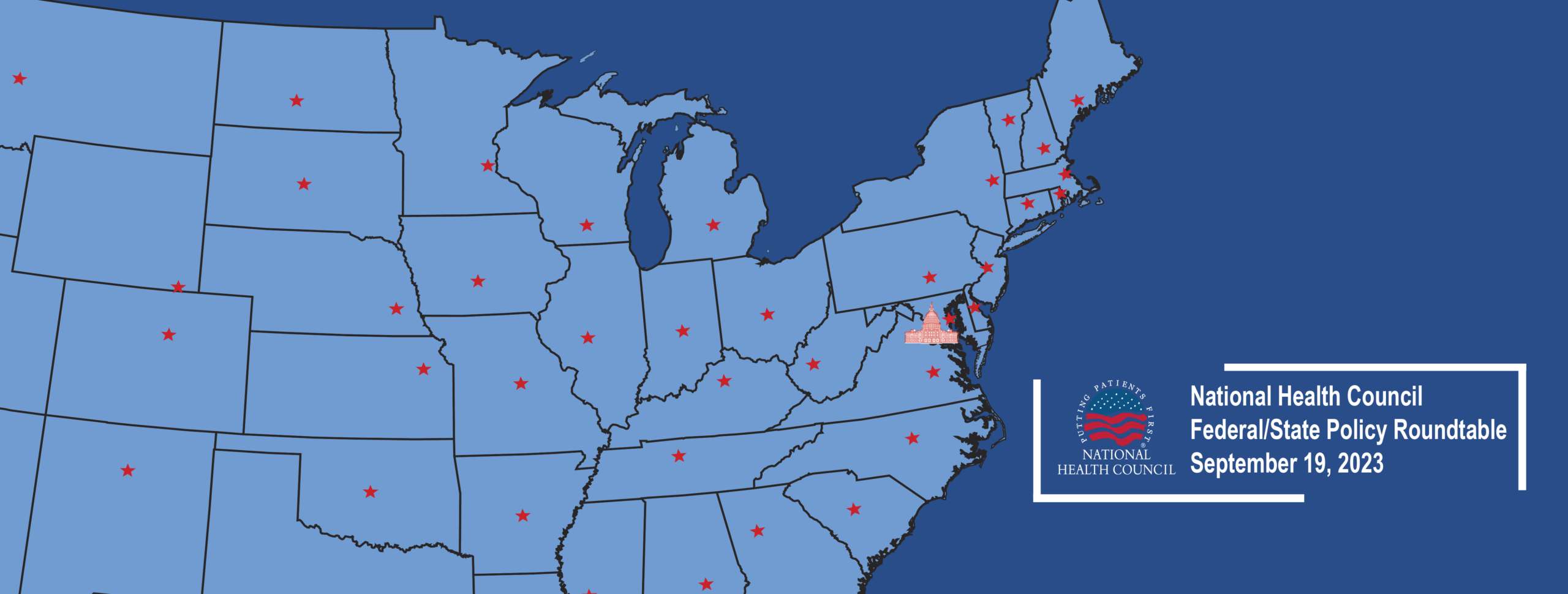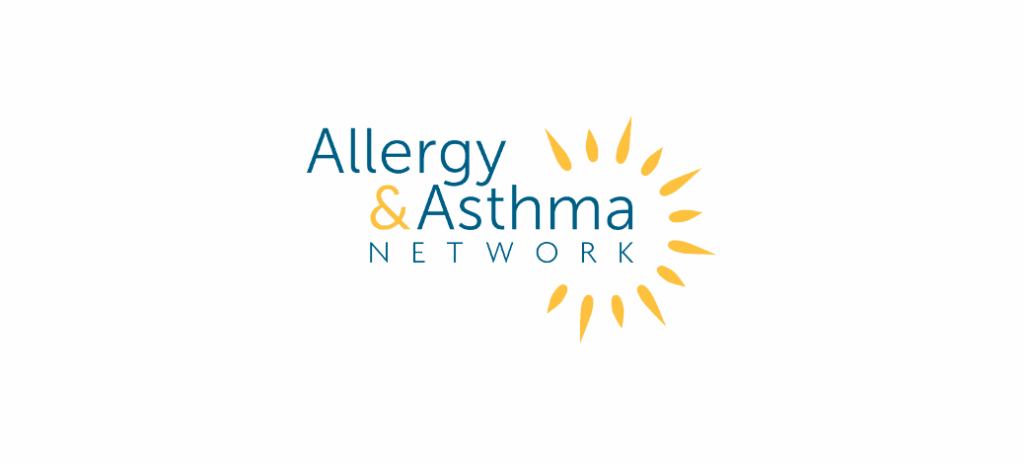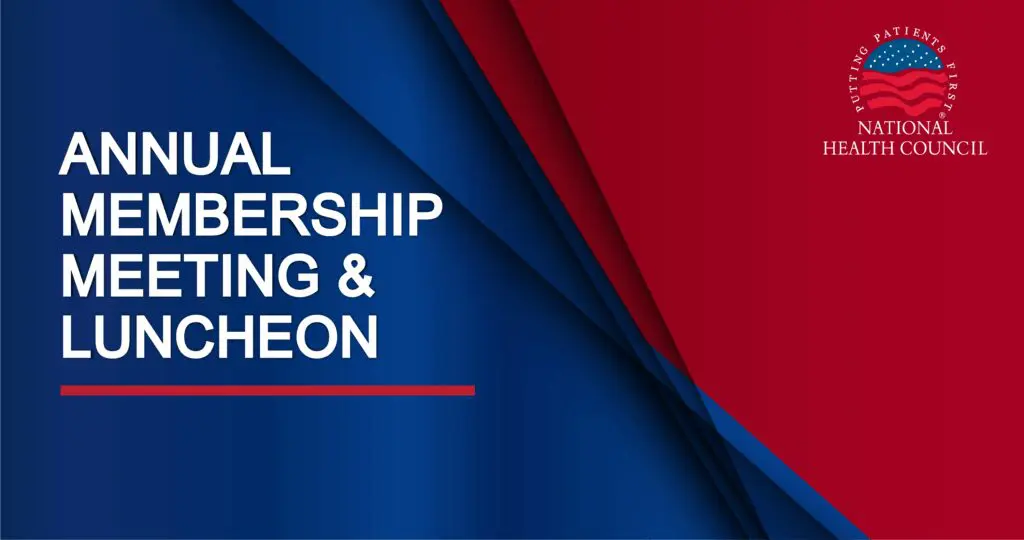

Fall Federal-State Roundtable Recap
By: Allen Pinn, Coordinator, Policy
The National Health Council (NHC) held its second Federal-State Policy Roundtable on September 19, 2023. The Roundtable gathered over 60 federal and state policy professionals from NHC’s membership from across the nation.
A summary of the presentations, breakout sessions, and panel discussion can be found below.
CMS Federal-State Coordination
John Hammarlund, Deputy Director for Local Engagement and Administration at CMS Office of Program Operations and Local Engagement (OPOLE), opened the Roundtable with an overview of OPOLE’s mission and organizational structure. In his remarks, Hammarlund highlighted OPOLE’s efforts to engage with local communities in the delivery of CMS’ services and his desire to engage more with the NHC’s members, patients, and other stakeholders. Hammarlund also highlighted CMS’ ongoing efforts to expand coverage and advance health equity through the policymaking and implementation processes. Significant initiatives being undertaken by CMS and OPOLE include behavioral health, drug price affordability, maternity care, Medicaid unwinding, and rural health. Hammarlund ended his presentation by emphasizing OPOLE’s commitment to continue its outreach and education efforts on all CMS topics and bringing local stakeholders’ stories directly to CMS decisionmakers to help create policy initiatives.
Facilitated Breakouts on State Policy Trends
Participants were grouped in breakout groups to discuss and share issues they are working on. Individuals were divided into groups based on the size of their organizations, and the discussions were moderated by NHC facilitators. In these conversations, participants discussed current federal/state policy trends. Key issues that were shared in multiple groups included prescription drug affordability boards (PDABs), shrinking state budgets, Medicaid expansion, Medicaid unwinding, and telehealth expansion.
Overview of Medicaid Issues in State and Federal Response
The unwinding of Medicaid has drawn significant attention from the patient advocacy community. In the months since the beginning of the unwinding phase, over six million individuals have been disenrolled from Medicaid. Robin Rudowitz, Vice President and Director of the Program on Medicaid and the Uninsured at KFF, shared with participants the status of the unwinding and how KFF is tracking unenrollment. In her remarks, Rudowitz gave an overview of Medicaid Unwinding which included background information the Consolidated Appropriations Act. Rudowitz highlighted that the majority of disenrollments (72%) were due to procedural reasons as of September 15, 2023. States with the highest percentages of disenrollments due to procedural reasons are New Mexico (99%), Nevada (95%), and Utah (94%). Rudowitz also informed participants that of the six million disenrolled from Medicaid, four in 10 were children. Many participants shared that this is a major issue their organizations are invested in. In her closing remarks, Rudowitz discussed how KFF will continue to monitor how the unwinding impacts social determinants of health (SDOH) and health coverage rates.
Reactor Panel of NHC Members
The Fall Federal-State Roundtable concluded with an NHC member reactor panel with co-panelists Caren Howard, Senior Director of Policy and Advocacy at Mental Health America, and David Benson, Senior State and Local Campaigns Manager at the American Cancer Society Cancer Action Network (ACS CAN). Both panelists gave overviews of their organizations and their reactions to the previous presentation on Medicaid concerns. A few key Medicaid priorities for both panelists included the reentry process and work requirements. In her comments, Howard shared how her organization coordinates with multiple states regarding mental health issues, specifically mental health parity. She shared examples of working with affiliates in Colorado and New Jersey to get parity legislation passed. Benson reiterated participants’ gratitude toward KFF’s fieldwork regarding Medicaid unwinding and discussed the framework of ACS CAN, which includes thousands of volunteers, grassroots managers, a media advocacy team, and government relations directors. In his closing remarks, Benson stated the importance of gathering patients’ diverse experiences/stories in relation to data points to educate policy makers on issues ACS CAN’s constituents face regularly.


